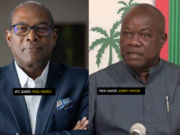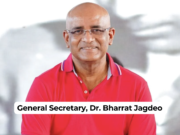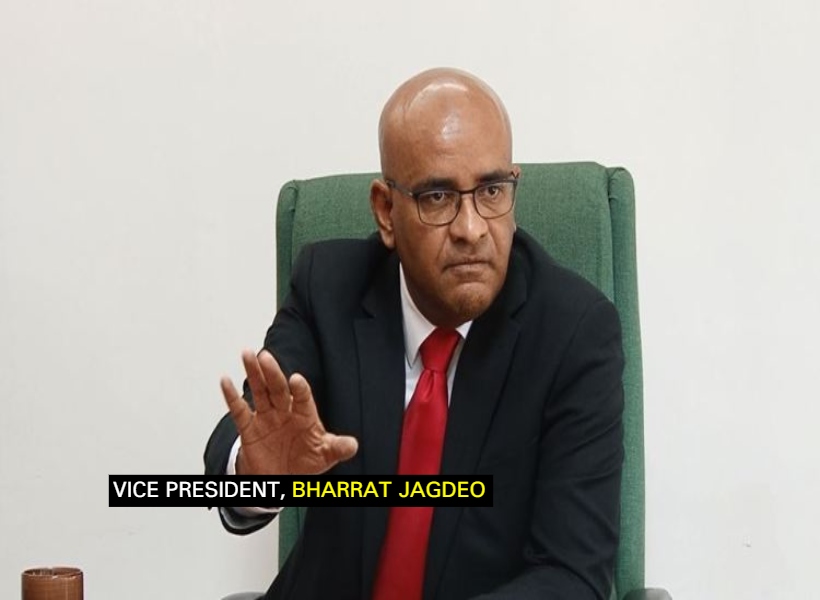Vice President, Dr. Bharrat Jagdeo opened his press conference yesterday by addressing mounting concerns about Guyana’s readiness to handle potential oil spills from ExxonMobil’s operations in the Stabroek Block.
Dr. Jagdeo assured however that the government is taking several proactive steps, including substantial financial safeguards and new legislative initiatives, to ensure the country is well-prepared to manage any environmental emergencies arising from its burgeoning oil and gas sector.
“We have seen by some local NGOs [Non-Governmental Organisations] operating at the behest and on behalf of and paid for by the some international NGOs. We’ve seen them now, create this great fear about potential oil spill in the country and our capacity to address this,” said Dr. Jagdeo. In his response, the Vice President underscored the growth in national capacity to address potential spills.
Dr. Jagdeo also expressed satisfaction with recent remarks by the Executive Director of Environmental Protection Agency (EPA) Kemraj Parsram, who highlighted adequacy of resources to address any potential oil spill.
He reminded of the US$600 million financial assurance from Exxon to address a single event and the US$2 billion oil spill guarantee from the Stabroek Block co-ventures. Recently, Parsram disclosed that the US$2 billion guarantee is not the maximum value Guyana can access in the event of an oil disaster, but rather the minimum, indicating that it can increase.
The Vice President stated, “So many people have been saying that this may be inadequate. We believe it’s a substantial amount of resources.”
To this end, Jagdeo referenced comments made by Parsram, who clarified that Guyana’s Environmental Protection Act mandates ‘strict liability’. This provision ensures that the permit holder, in this case, ExxonMobil, is fully responsible and liable for any pollution caused.
“And that does not have to be proven. So the EPA Act already deals with full liability outside of the insurance that I spoke of…” Dr. Jagdeo stated.
However, he said that the current legislation is not entirely adequate. To bolster the legal framework, Dr. Jagdeo announced that the National Oil Incident, Emergency Response and Financial Responsibility Bill 2024, should be tabled in the National Assembly and passed before recess in August 2024.
He disclosed that the Bill will be sent to various departments of the government for the first round of discussions. The new bill aims to enhance the country’s capability to hold responsible parties liable for any polluting activities and ensure full compensation for affected individuals. This includes not only oil and gas producers but also shipping companies.
Moreover, Dr. Jagdeo stated that the government has mandated that Exxon develops its local capabilities to address spills quickly. “We have asked that they have the capping stack available in the country, which can plug an oil spill immediately should this occur,” he said, noting that such measures were not available in many parts of the world during past environmental disasters.
Addressing regional concerns, the Vice President responded to remarks by Gary Aboud, the founding member and Corporate Secretary of a Tobago-based fisherfolk body, who on Wednesday expressed worry about potential oil spills in Guyana affecting Trinidadian fishermen. Jagdeo pointed out the irony, saying, “When they were producing oil and gas for a 100 years they were not worried about an oil spill occurring in Trinidad affecting our fisherman.”
In conclusion, Dr. Jagdeo reiterated that comprehensive steps are being taken by the Guyanese government to address oil spill preparedness. “The steps we’re taking to address this issue are way beyond what many other countries have been doing. We’re not just ensuring that we have financial means to do so, to address the problem but we also have the law back in us, so that should this any such an incident were to happen then we’ll be ready to address it,” the Vice President stated.











